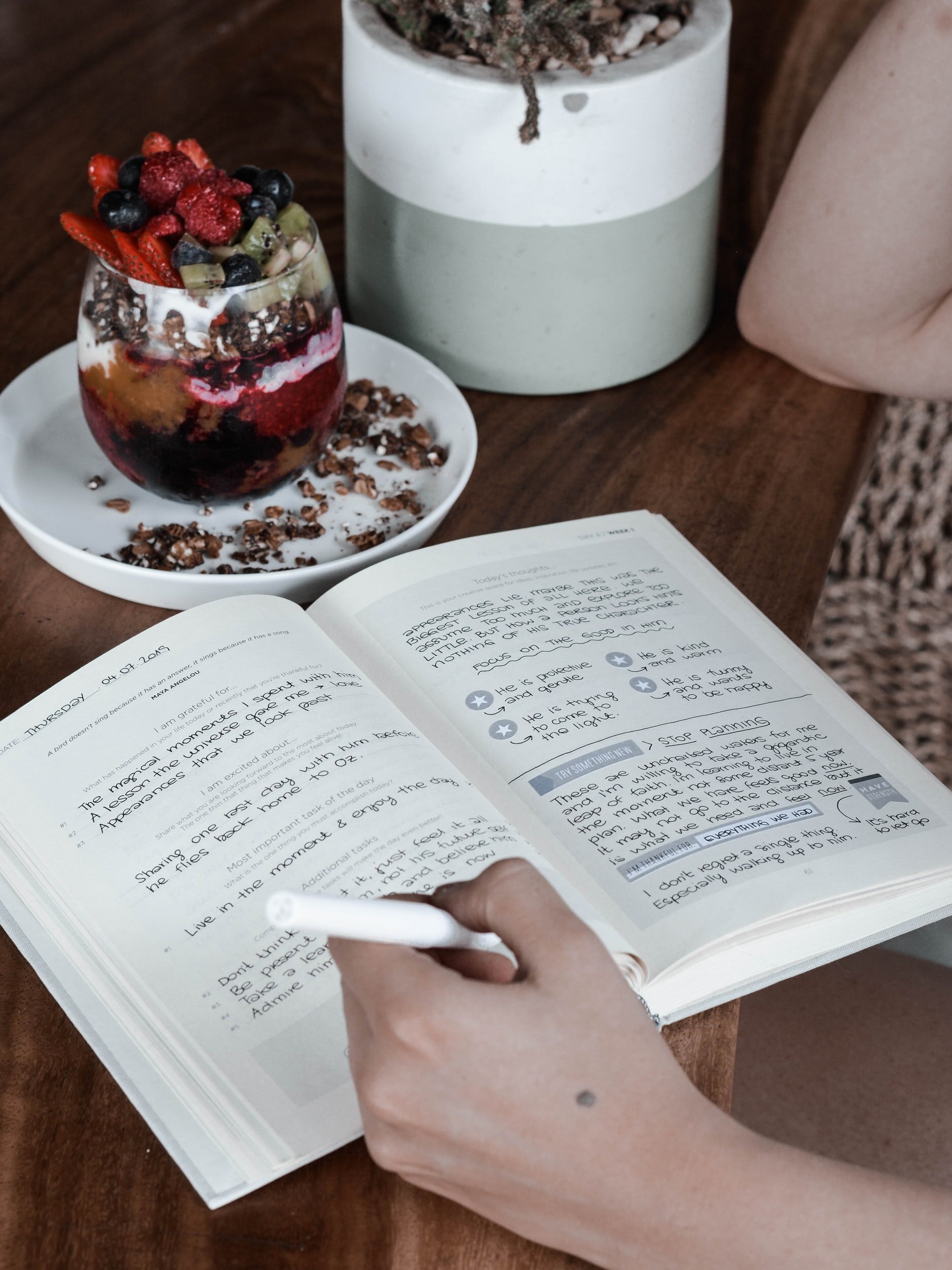Daily Life | IBD | Information

Picture of on open notebook with a pencil on top of it. Image by Jan Kahanek on Unsplash
“You might want to keep a food journal,” my GI advised during my first post-diagnosis appointment. The plan sounded simple enough. As I gradually increased my diet, I would take notes on how my body responded to various foods. This would allow me to identify specific ‘trigger foods’
Pretty easy, right?
I pulled out a blue cloth journal I had tucked away in a drawer for something special and began logging my eating and bathroom habits. “Scrambled eggs,” I recorded with a sense of satisfaction the first morning. This journal was going to get me back on track. Soon, I would be in the driver’s seat of my life again.
As usual, the simple meal sent me sprinting to the bathroom as if my pants were on fire. It felt as though someone was stabbing me in the gut with a steak knife. I sat on the toilet and flipped open my notebook. Maybe journaling would distract me from the pain. As I stared down at the page, however, a wave of confusion rushed over me. How could I describe my pain in medical standards? Where did I fall on the famous pain scale?
Pain ripped through my body, but I was alive. I had managed to walk from the kitchen table to the bathroom. Surely my pain couldn’t be a 10? Could it be a 9? Was it really that bad? Was I being overly dramatic? Maybe it was a 5? Was that underselling it? Was it better to undersell it or overstate it?
I settled on writing “extreme pain,” but I knew that this would not be much help. How would I distinguish between varying levels of “extreme pain”? How could I screw up something so simple? I turned down to look at the toilet (Fun with IBD!) There was blood. But how much? There was certainly less than there had been a week ago, but there was still a fair amount. How could I record the amount of blood in my stool without any standard form of measurement? What about the texture of my stool? I didn’t have any technical terms and writing “water-like” or “fuzzy” just seemed embarrassing. I didn’t want my doctor to think I was an idiot. What if he looked at me funny? What if there was an awkward silence? How would I ever face him in the future?
You see, in addition to chronic physical health issues, I struggle with severe Generalized Anxiety Disorder and social anxiety. My brain can conjure worst-case scenarios and ‘what ifs” quicker than a tidal wave destroys a sand city before a storm. I become so immersed in meaningless details and concerns that the path forward is completely blurred.

Picture of an open notebook filled with writing. Image by Prophsee Journals on Unsplash
Every time I gave my doctor an update, I wondered if I was underplaying my symptoms or overplaying them. I always opted to minimize them for fear that I would end up in the hospital unnecessarily. I did not want to go on any more medications or anything more destructive to my body.
The stress eventually became too much. I stopped recording in my journal altogether and relied on my memory. I gave my doctor rough estimates of my daily bowel movements, pain level, and blood loss. I did not need to worry much about reporting my meals or finding my triggers. Everything was a trigger and I had pretty much stopped eating.
My symptoms quickly spiraled out of control, landing me in the hospital again. There was no point in keeping a journal while in the hospital. There was almost always a nurse or doctor popping in to ask for updates. Nevertheless, I struggled with the same anxieties I had with my journal. I became frustrated when I could not find the right words to describe my symptoms and I began giving medical professionals the answers they wanted to hear. I hated the look of shock on their face when I reported my number of bowel movements honestly, so I stopped paying close attention and gave broad answers.
This was a mistake. My failure to listen to my body and honestly report my symptoms prevented my medical team and myself from realizing how rapidly my health was declining.
When I began writing this blog, I intended to show that a symptom journal was not for everyone. I was going to ask the medical community to come up with different, more straightforward methods of tracking systems. As I reach the conclusion of this piece, however, I have come to realize that I am the one who needs to change. I cannot allow myself to get hyper-focused on perfection or accuracy. I need to stop obsessing over what medical professionals will think of me or my answers. The whole purpose of a symptom journal is to help my medical team devise the right plan for me. They can only do this if I am as straightforward and honest as possible.
If you are struggling with a symptom journal, stop and ask yourself what is making it so hard. Do not be afraid to describe your experience in your own words. You do not need to have a medical degree or a strong science background to understand yourself and your symptoms. Trust yourself.
*If you need help starting a symptom tracker, Girls With Guts offers “A Gutsy Feeling” and a UC Symptom Tracker.
